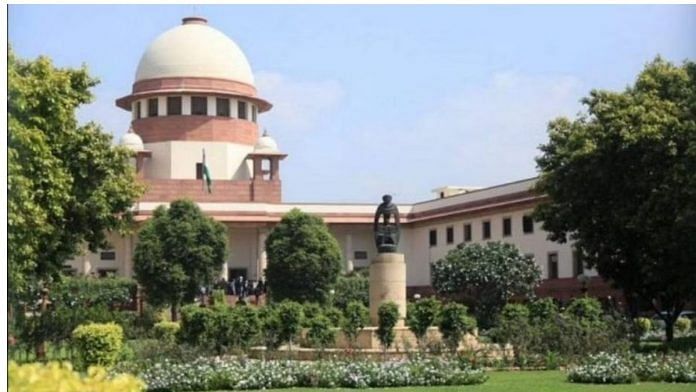The Judiciary is one of the three essential organs of democracy, and it is the defender of justice and civil rights. In India, the judiciary has been choking under the pressure of thousands of undisposed cases, some of them have been pending for decades. Can India be a true democracy when its situation is a textbook example of “Justice delayed is justice denied?”
As of March 2022, there are 4.70 crore cases pending across courts in India. More than 70,000 of those are pending in the Supreme Court. 40 per cent of these have been pending for more than five years. The Supreme Court is essential for interpreting the Constitution, and delays in their judgements is detrimental to the rights of Indians. There are 59 lakh pending cases across the 25 high courts in India. Courts received some much-needed relief during COVID-19. Had the pandemic not caused closure of courts, there would have been many more pending cases. But the number of cases is just one part of the equation.
Understaffed courtrooms
Indian courts are understaffed, severely lacking the number of judges required. All 25 high courts of India have a combined sanctioned strength of 1,104 judges, yet 387 of these posts are vacant. So, 717 judges have to handle 59 lakh pending cases, with the number rising every day. Unfortunately, we can’t just hire more judges, without negatively impacting the quality of judgements due to under qualified judges.
This delay in cases can be catastrophic for the concerned parties, as the particular circumstances of individual cases change, rendering judgements useless. In civil disputes, the measures demanded by the petitioners may soon become irrelevant, causing monetary loss, or more importantly, may even deny citizens their important rights. In a country as diverse as India, unequal treatment of minorities has been a major issue, especially in recent times. Disadvantaged groups need the courts to ensure that they have the special protections they require to become equal citizens in the social and economic fabric of India. When it comes to criminal cases, victims and their families have to wait years and years to get justice, delaying the closure needed to try to get back their lives. On the other side of the coin, we have innocents who have been wrongly accused of crimes, and wait years in jail for a crime they didn’t commit. If they are acquitted, they can never truly go back to their lives.
Also read: ‘POCSO overrides personal laws’ — Karnataka HC holds pregnant Muslim minor’s marriage invalid
CJI Lalit’s impactful tenure
The current Chief Justice of India may be just who we need. On 27 August, 2022, U.U. Lalit took office as the 49th CJI. He has been vocal about the pendency of cases, and promised several measures to lighten the load. He swiftly established constitutional benches and listed 25 matters to be heard, and has promised that a constitutional bench will function throughout the year. Lalit also introduced a new system for listing cases which seems to balance the disposition of old cases as well as new ones, to reduce the overall burden as well as provide timely justice by ensuring an equal distribution throughout the working week. And this system has proven to be effective. Within 13 days, the apex court managed to reduce their backlog by 4000 cases, an incredible number for such a short period of time. CJI Lalit himself admitted that it was a herculean task on the judges’ part. After this system is adjusted a bit to suit the day-to-today capabilities of judges, as well as adopted by lower courts, the backlog of cases will steadily decrease.
CJI Lalit faces another challenge in his pursuit: Time. His term of 74 days will end in November when he turns 65, the mandatory age of retirement for judges. The question isn’t whether he will be able to make an impact in the time he has. Instead, we should be asking whether or not his policies will be continued after he is gone. While we can guess and make assumptions, we won’t truly know until his successor arrives.
The judiciary is the main instrument of justice in our country. It must be refined and improved to function at peak efficiency for a just India. As we begin our 75th year of independence, we must reflect on the promises of the past, and the realities of the future. Our forefathers fought for an India where true, impartial and timely justice was the law of the land. And we must, for our sakes, and for the sake of India’s future generations, make their dream a reality.
The author is a student at New Horizon Scholars School and Neo Kids.



